Do you believe in God?
I cannot remember if I had ever truly asked myself this before, but the question had long been hiding in the back of my mind. The comfort of routine faith had kept the notion just below the surface. Now, the thought sat opened on my conscience filling my every thought with its cold discomfort. It had only blossomed in my mind shortly after returning from a trip abroad, and I was suddenly pulled from my naïve childhood notions and faced with a larger, more global sense of life. Even still, I could not say the words out loud. That one question was altering my entire life, and I had to approach the answer cautiously. There was a slow process of transaction. I was replacing the filter on my scope of life.
Catholicism was the compass I had been given in childhood, and I had blindly followed its direction into the woods, only looking up when I realized I no longer recognized the world around me. Frightening and ever present, those beliefs had been ingrained within me, and it had taken a journey across the world to force me to acknowledge my uncertainty. I was beginning to slide down the unstable foothold that was doubt, and the more I fought, the faster I fell into the quicksand. Thinking back to my introduction to religion, I tried to trace the evolution of my soul searching for an answer to my salvation.
My family was very large with a half dozen kids. I was the fifth child and first girl born to parents of traditional roles. My mother thought it her life’s work to serve her family, disregarding education or any sense of self- reliance. Therein was the role model that taught me to question everything. Seeing her unfulfilled kind of sadness inspired me to pursue a life with a larger sense of worth. As for my father, he has always been a figure shrouded in mystery which has left me with a skewed perception. To me, he was a pathetic man that tried to provide for his family but allowed weakness of body and mind to destroy his will to live. It was their limp presence in my upbringing that urged me to search for more. Yet, my exposure to religion left me with a hollow understanding of myself and how to exist.
The first time I attended church I was only just entering preschool. God had only entered my home after the death of one of my four brothers. My mother had obediently turned to religion and dragged my sister and me towards the light. She had begged my father to go as if it would relieve the burden of their loss. He had refused, turning back to his newspaper and beer. From six in the evening until I went to bed, my father could be found at that post.
Only later did I realize that my father had already spent a lifetime hiding from the grasp of Catholicism and drinking it away. It was a complicated relationship that I know influenced his hopelessness. He was a flimsy man easily brought down by the heavy guilt that often comes with a childhood in front of the crucifix. That weak foundation cracked when my brother died. As whispered among family members, my father took blame for my brother’s death, but the truth has been lost to time and too many shared words.
I could see what she was imagining, the three of us marching in through the doors as our own little holy trinity.
On that day, not long after my brother’s death, my mother took my younger sister and me to find hope. She had dressed us up in matching outfits, something I had always loathed, but she took pride in. My sister and I, doll-like twins. It made my mother feel some kind of semblance in her life. Our picture perfect appearance was a reflection on her. For a brief moment she had the family she so wanted. The alcoholic husband, dead son, and three surviving, yet resentful, sons were hidden behind our matching ruffled dresses. We, however, were not of the same birth. I was a year and a half older and felt as if part of my identity was lost in the assumption that we were “twins”. It was only the beginning of my lost identity.
She looked at us in our matching outfits with a smile we would rarely see after the death of my brother. I could see what she was imagining, the three of us marching in through the doors as our own little holy trinity. Thoughtfully, she told us about church and God. It was something our family had never experienced as a unit nor would we ever. The three of us were the only ones that marched on to be saved. On the drive to mass, my mother told us of the immense building, the hovering statues, and priests commanding a congregation. In her attempt to inspire us with its powerfulness, I was more scared than intrigued. I can recall the strange mental picture of men dressed in army fatigues commanding crowds of people.
Not long after our first trip to church, my sister and I were sentenced to Catholic school from kindergarten through eighth grade. My mother was saving us, giving us a better life. This was something my older brothers seemed offended by. Their two little sisters were the angels that received holy treatment while public school had been good enough for them. What my mother thought to be a head start in life was, at least for me, a frightening and confusing path. God became a looming presence in my days. It seemed dangerously reasonable to threaten children with damnation as soon as they could comprehend fear. You always thought twice when God was watching, keeping tick marks of good and bad.
But if I behaved only because of the threat of hell not because I wanted to behave, was I still bad?
The contradictions kept me awake at night. I often struggled with an almost obsessive behavior trying to make sure my soul was not lost to hellfire. The fear and guilt ate at me. I was tortured by the fact that I would not know if I had been an obedient servant to the Lord until I was standing at the gates of heaven. It never felt like I had done enough, and I was a strange paranoid little girl. My panic attacks started somewhere around age six after I had started attending kindergarten. Stories of God were almost incomprehensible to me, and I felt lost in a foreign world of rules that if broken, condemned me. Sometimes I even fretted that I had somehow accidentally sold my soul to the devil without realizing it. The thought often made me more concerned that I was losing my mind.
Then, when I was in eighth grade, my view of the church was suddenly distorted. It was like seeing the strings on the backs of the puppets. My father committed suicide while my sister and I had been at school. Somewhere in the morning, as we sat in mass, our life changed and no amount of prayer could protect us. Life had been too much for my father, and he was unable to deal with my brother’s death, unable to find meaning any longer. I wanted to laugh at the thought of the prayers, confessions, and masses I had willingly performed and attended thinking it would keep me safe. The veil was pulled from my eyes.
For the first time, I realized that life did not fit into the rulebook of Catholicism. I had spent a childhood looking to the church for the answers of life, but my father’s death only proved that there were no answers. The contradictions that had scared me were now fuel for disbelief. The rituals and so called sacred sacraments that anointed me in redemption were empty actions. The fear I had allowed to control me was suddenly ridiculous. I still believed in a god, at least I wanted to at that point. I still prayed to something every day. But it’s difficult to suddenly decide that a presence you’ve been exposed to since childhood was a mirage all along. A grand scheme to make little children behave and adults grapple with guilt forcing them to place money in baskets as repentance.
My sense of religion began to float away. I attended a public high school as we could no longer afford educational salvation. I no longer identified with Catholicism and often referred to myself as a “Recovering Catholic”. Yet, I succumbed to temptation and would ashamedly pray here and there for superficial needs. Somehow, my wants were important enough to bypass a world of others’ wants and needs. Contradictions ensued. I was lost in a tangle of the beliefs I had been raised on and the questions that shook the foundation of those beliefs. The thought of going through life without the rules of religion seemed daunting but liberating.
But how did I know how to live my life if there was no summit that I had to climb to reach heaven?
My misguided persona of god was all I had left. Then, even that presence escaped me.
At twenty one, I stepped foot in India. Everything I thought to be true was set on fire in the heat of the land. The red soil ground bled beneath me. The term “culture shock” suddenly made sense, and I felt an emotional exhaustion at my different-ness. Even that was absurd, the longer I stayed. My discomfort was incongruous. I walked right by skeletons of former people with their hands outstretched, begging for money or food.
Where was their God?
Diseases I had only read about sat looking at me as I shuffled by trying not to stare. We were worlds apart, but we were both still people.
Why was I better off than them?
I can remember a strangling hopelessness as I passed two naked children lying next to each other on the street trying to nap on the baking pavement in the blistering heat of the sun. Their delicate skin was pockmarked with the pattern of the cement. They had nothing and no one. Not even clothes. I sat in my room and cried the rest of the afternoon thinking of them.
What in the hell was I doing there?
My thoughts and beliefs were a mangled mess trying to shape the world of India into something familiar, something that made sense, but it wasn’t India. It was my notions of the world that did not make sense.
I observed in a Pain and Palliative Care Unit as part of my college curriculum. It was a program that provided comfort to the dying. Many, I learned, were capable of cure, but they didn’t have the money or resources to come to the hospital for treatment. They would die as salvation sat just out of reach, the price too high. I sat sweating in the waiting room each day, my t-shirt damp and suctioning to me. Nurses started IVs without rubber gloves, the lights cut in and out with the power outages, patients vomited in hand held receptacles.
I sat quietly trying not to gawk or breath in the invisible germs. I kept my face down trying to avoid the stares. Children and even adults often came up to me and outright grabbed at my curly auburn hair as if to keep as a souvenir. I learned not to make eye contact and to keep my hair secured in a braid.
On another sweaty afternoon, I caught sight of a woman staring at me from her seat. I wiped the sweat from my face wondering if I was beginning to stink, and I tried to avoid staring back. I couldn’t help myself, and I stole glances at the woman that didn’t seem deterred by my acknowledgement. She looked gray and withered. She wrapped part of her colorful, flowered Sari over her head and around her chin. Her brown eyes stayed fixed on me, making me shift in my seat.
When the doctor gestured her into the exam room, he nodded at me to follow. I obeyed, peeling my sticky body from the plastic patio chair. The lights flickered as the power cut out again. I wanted to cry. I knew it was because of my own distress and not the people dying around me. I did my best to swallow my selfishness with the tears and shame.
As the doctor examined her, he pulled the silky fabric of her sari away revealing a softball size tumor along her jaw. The stretched skin pulsed with blue veins. The woman looked away clearly embarrassed by the disfigurement as if she had been marked. I bit the inside of my cheek trying to keep my face from twisting into a horrified response. Only when the coppery taste of blood rolled across my tongue did I release my clenched teeth.
It was treatable with radiation the doctor said to us in English. “But, the family cannot afford it, and they do not have time to bring her,” he added. The doctor was a remarkable man that made me feel inadequate as he scowled at my mumbled, half-hearted reasons for traveling across the globe to witness people dying.
“What will happen?” I asked hearing my own naivety.
“The tumor will grow and burst. She will probably bleed to death,” he told me without missing a beat.
I choked on his response. He recognized the shock on my face, but dismissed it as if I had told him that I believed in Santa Claus. This woman was only one of millions that was sick and dying when they could be saved. He did what he could, and that was better than what most offered. Clearly, I didn’t understand the reality of the world.
For weeks, I saw faces and ailments. I was pulled into exams as if my nationality gave me permission to view the sick as exhibits. I saw infection, lost limbs, insides falling out, I saw living death. The more I saw, the more I wanted to see. It was like a punishment for what I would get to go home to and guilt closed in on me. I needed to see the misery and suffering because I didn’t have to live any of it. I would get to go home and store the experience in the back of my mind and never have to think about it again.
The weeks floated by in a curry scented fog. I fell into bed each night and cried myself to sleep even though I had no idea what it was that I was crying about. I wasn’t sure if the tears were for the people I saw, the suffering that confused my sense of fairness in the world, or if the tears were selfishly for my discomfort. The heat swallowed me even in the dark of night, and I would lie there sweating, sobbing, and swatting off mosquitoes, wishing I had never come. It felt like my soul had been torn out and tossed into the Indian Ocean. Life seemed to hold no meaning.
When I did set foot again on my own soil, the red clay continued to follow me. Suddenly, I was insignificant in the face of the world.
I didn’t matter.
How could I?
I had food and clean water. I had health insurance. I suddenly found myself unable to pray or even think of God. I had only ever asked for the things I wanted. I needed nothing. It made me sick to think that what I had seen was only a tiny fraction of what was out there.
I wanted to sneer in their face when people said, “God answered my prayers! I got that ‘A’. I got the job. I got whatever the hell I had been praying for that I didn’t really need.”
What about the rest of the world?
Didn’t they know there were millions of people starving to death around the world, dying from curable diseases, bleeding to death because their families didn’t have the time to take them to the doctor? I felt liking running from door to door selling my anti-religion, but no one would want to hear it.
Why wouldn’t they listen to my tale?
Because they had faith. They believed with every fiber of their being, whether there was proof or not. They wouldn’t care what I had to say, they already thought they knew. It then occurred to me that I never had a true sense of faith. It was more a piece of convenient clothing that I put on in need of warmth.
That thought made my heart cave in. I suddenly had nothing. The sky above was empty and the world below was bleak. Prayer was empty. My father’s fate seemed reasonable. Frequently, I found myself asking my empty conscience for faith or something, anything for comfort. The realization was so ridiculous I almost laughed.
Why did I deserve anything when others had nothing? Literally nothing.
I felt almost ashamed for the people that spoke of the things they prayed about. I would look away unsure of a response.
Didn’t they know? Didn’t they realize how minuscule their wants and needs were?
A hole formed within me where something like God had once been. I found myself restless and anxious. I had terrible panic attacks thinking of the nothingness of death, the black abyss sucking me from life. I wanted so much to believe, yet I couldn’t go back. Even as I thought these things, I didn’t actually acknowledge how I felt. It was like I kept telling myself, I think I still believe because I was scared that if there was a God he would discover my doubt and punish me. That was the ever fearful Catholic in me. Even when you think it is gone, remnants remain in your tiniest neurons. I was caught in this strange territory with one foot in and one foot out. I pretended not to notice even as I fought off the gasping pangs of panic attacks. I couldn‘t face it.
Faith has eluded me, but that trip to India set me free.
It has now almost been a decade since I went to India, and in that time, I have come to accept the godless notion that I was once so terrified of even considering. While I have not closed that door completely, any sense of faith that I had is gone. I often experience the ache of its absence like phantom limb pain.
After the birth of my first son, I moved to an area that is mostly religious and conservative, and I found myself squirming with discomfort when friends mentioned God or religion. I have considered attempting to go back to church in hope of finding some kind of peace or more honestly, to just to fit in or at least give my kids the chance to fit in, but I cannot bring myself to do it. I am often envious of those that have blind faith. Whether any of it is real or not, they at least have something to believe in, something to turn to when everything starts to fall apart.
In this struggle to find peace, purpose, and where the hell I fit into this gray fog of life, I have accepted that I just need to find what makes me want to be a better person. It doesn’t have to be faith, the fear of hell or the need to fit in, I have decided to be better for me.
Faith has eluded me, but that trip to India set me free. It took me years to understand what I learned in that small village across the world. Maybe it is more accurate to say that it took me years to accept that I never actually had any real sense of faith. India just shined a light upon it. Someone with true faith might have been strengthened by the experience. My views of religion were just a house built of hay that collapsed in on itself at the first whisper of wind.
My time in India opened a hole within my soul that I have filled with a variety of vices, obligatory life stages, societal roles expected of me, and I am happy to say, adventure. While India disrupted my ideas of self and God, it also made me want to know more about the world and myself. I have chased a writing career ever since my trip, writing for a variety of publications from blogs to newspapers, trying to find my voice.
In that time, I have been afforded the chance to travel. My travels have been unexpected and wonderful, mostly because I have been in the right place at the right time. In each trip, from Nicaragua to Iceland, I have been terrified along every step of the way. Scared of navigating foreign lands, anxious about looking foolish, terrified of screwing up, but forcing myself out of my comfort zone in order to grow.
Standing in foreign lands has been horrifying and exhilarating. It has taught me about the world and the many kinds of people that make up this place. It has taught me that seeking new horizons is what makes me want to be a better person. It has set me free from the confines of what I thought life is like and replaced it with a new reality.
It is ok that I do not know what I believe in after this world. To me, all I need to do is to keep exploring beyond borders both those in my mind and the ones on the map. Pushing myself beyond my discomfort is where I find my peace. Seeing new places and meeting new people helps alleviate the ache of that missing piece in my soul. Maybe one day I will find a whole piece that fits in that open wound, but for now, I am ok with chasing flights instead.

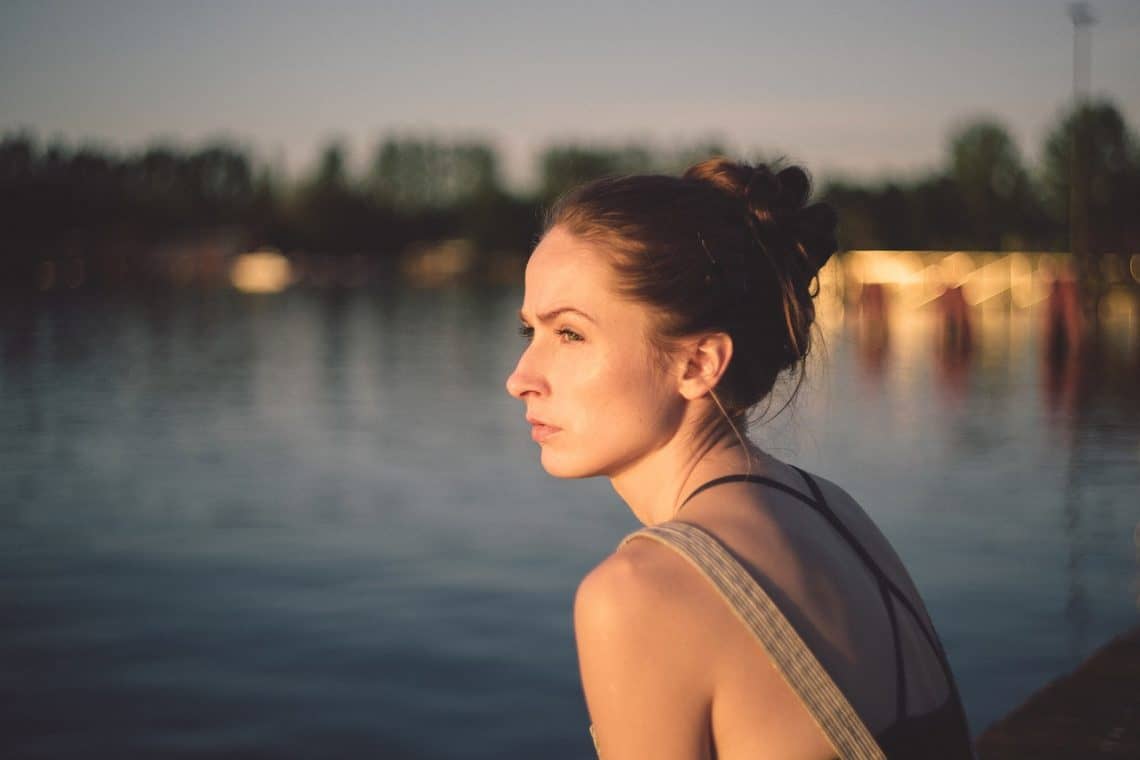
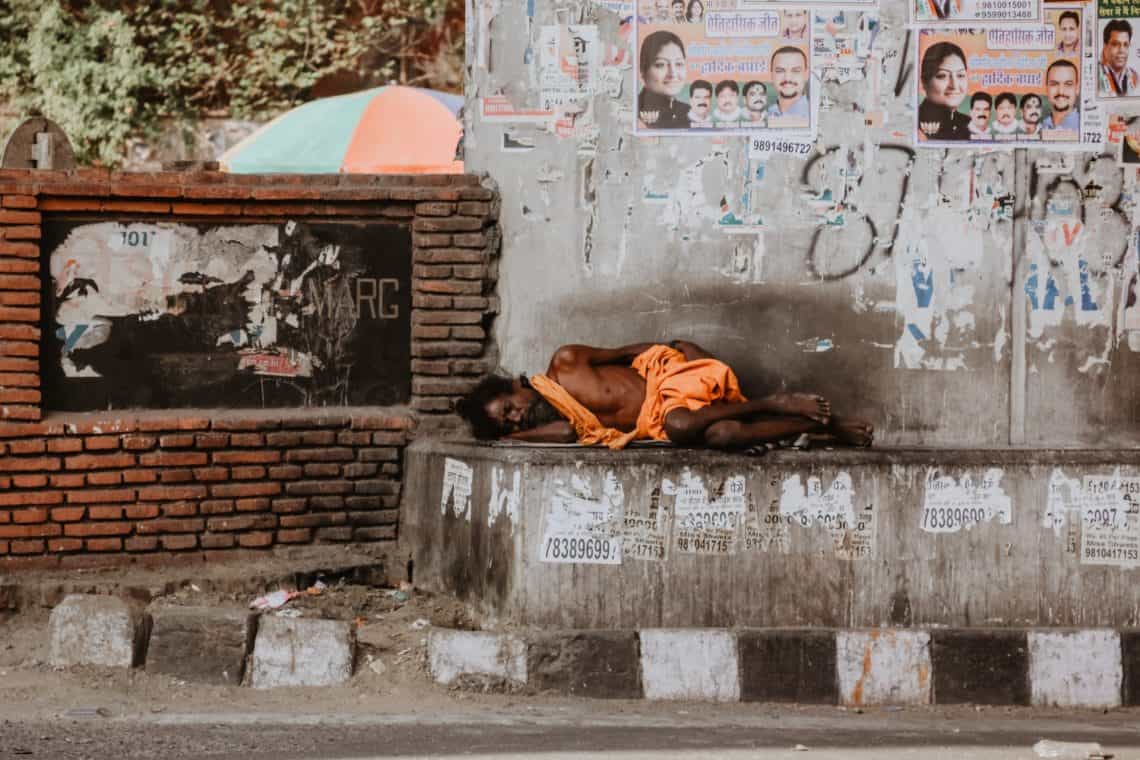
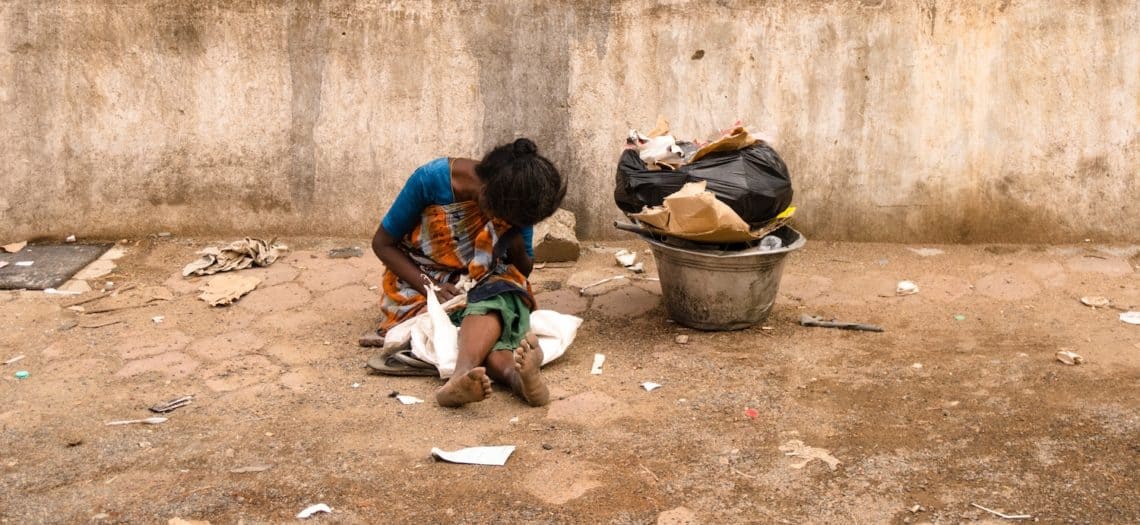
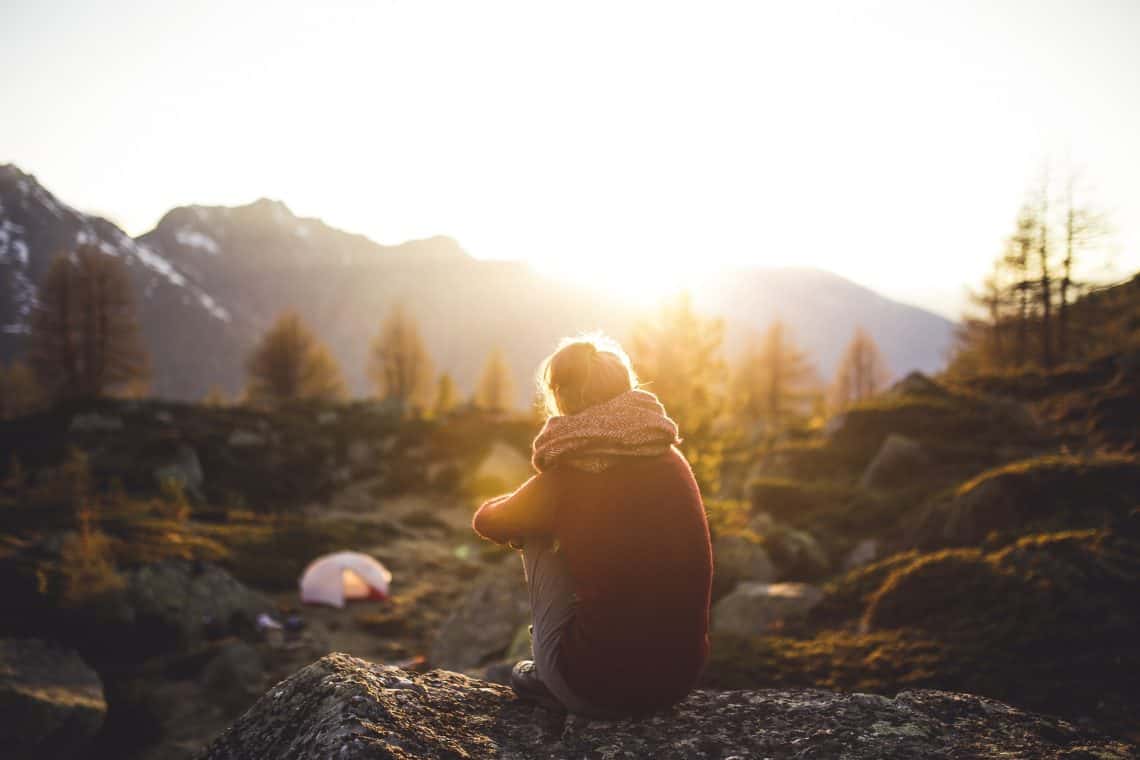
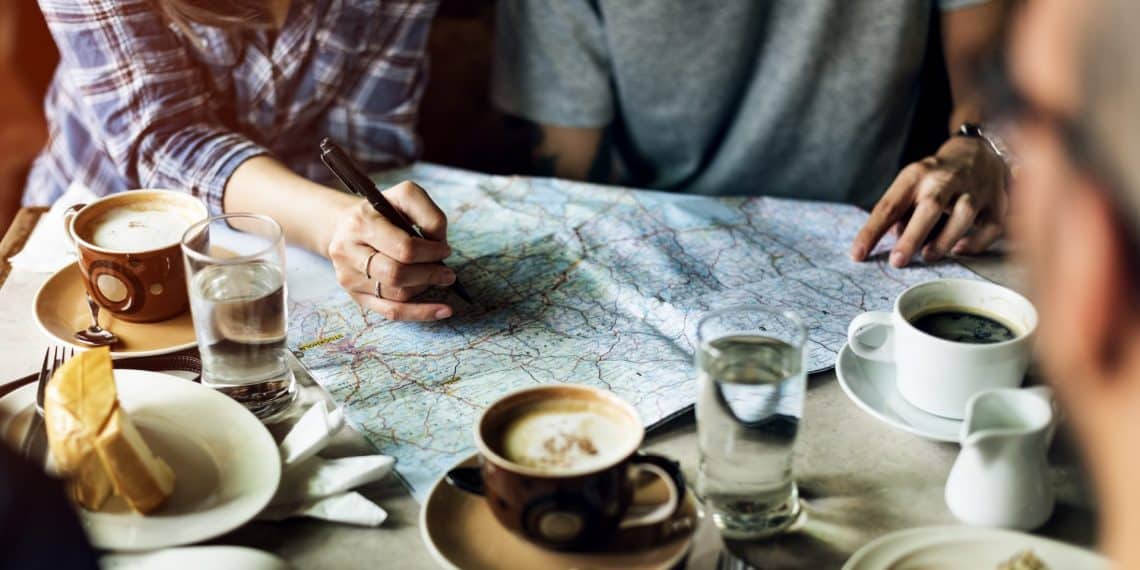
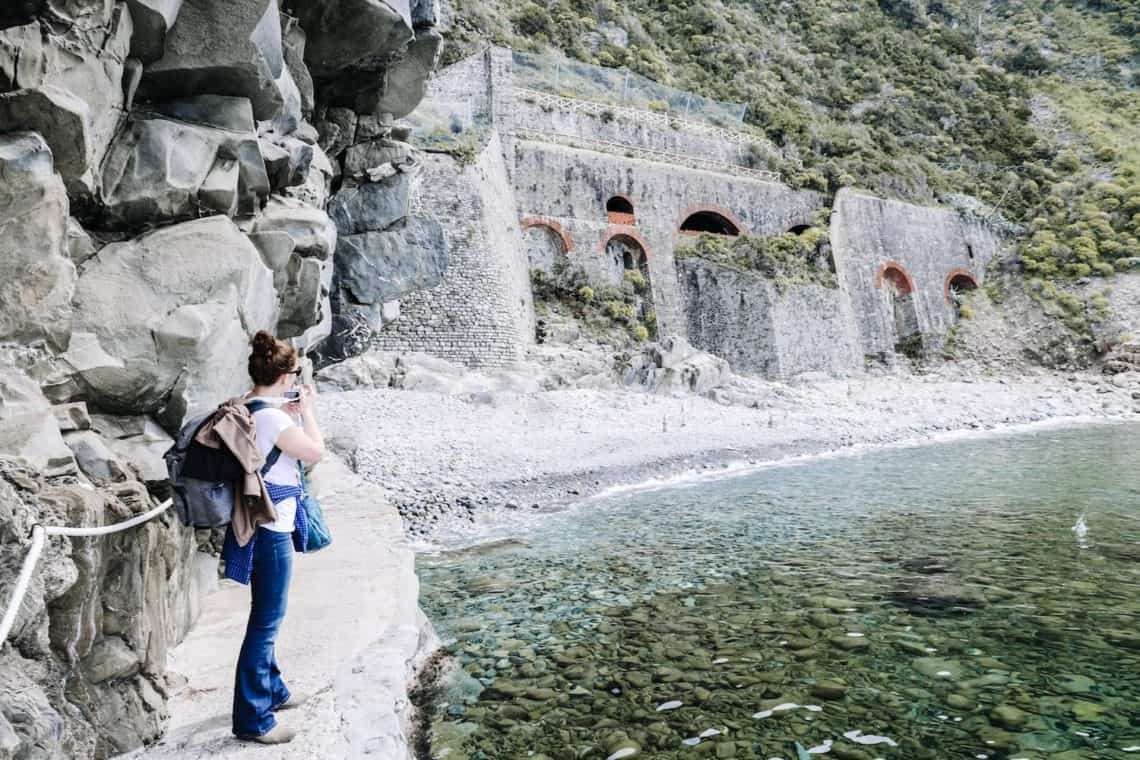
Thank you for sharing Kait. I just now stumbled across your post and despite our stories differences, there are so many similarities. Raised in a fundamentalist Christian family, I was terrified of going to hell as early as I can remember; about four, terrified of dying, terrified of being left behind. I didn’t have the same experiences as you, but I began questioning my family’s beliefs at a very young age. I paid for my questions with beatings and other punishments leaning quickly to keep my thoughts on religion to myself. As soon as I graduated high school, I moved to a city seventy miles away from the farm where I was raised. My questions, doubts, guilt and emotional trauma have been my constant companions for most of my life. I don’t believe in the god my family believes in, my god is not perfect nor does it involve itself in our lives or afterlife.
Thank you for sharing this incredibly moving account of your life. I randomly came across your page because you were mentioned on Travelzoo. The title of this post caught my attention, and I was instantly captivated by your writing.
My (not particularly religious) parents sent me to Catholic school from 1st-12th grade, solely for the quality of education, though of course I received all of the Catholic guilt and brainwashing that inevitably comes with the package. I am sharing this post with friends of mine who are also no longer affiliated with the Catholic church. There is an unequivocal solace in being part of the community of those who still sometimes feel the guilt of rejecting what was once so ingrained.
Thank you so much for reading and for commenting. It can be difficult to share feelings and opinions on subjects like religion, but I did it in hopes of reaching out to others that have had similar experiences. It feels wonderful to know that others have read my story and could relate, to know that I am not alone. You put it perfectly in your comment. Again, thank you so much for taking the time to read it.